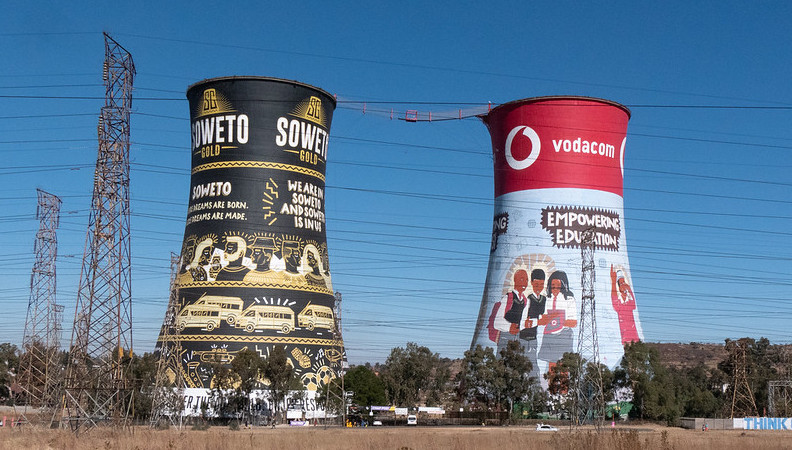South Africa is tightening environmental demands for new coal-fired power plants, after what campaigners called a ‘landmark’ ruling that licences for water use should consider the risks of climate change.
Global warming is projected to lead to increased droughts and stress on water supplies in South Africa, which generates about 90% of its electricity from coal, one of the highest rates in the world.
The nation’s Water Tribunal in Pretoria upheld an appeal by environmental campaigners to scrap two water use licences granted in 2017 by the Department of Water Affairs and Sanitation to Saudi Arabia’s ACWA Power for the development of the 600MW capacity Khanyisa coal-fired power station.
groundWork, the environmental justice group which made the successful appeal, this week hailed the little-noticed 21 July ruling as a landmark in the fight against coal and global warming.
“The landmark aspect is that for the first time climate change is specifically confirmed to be a ‘relevant factor’ to be taken into account when considering a water use licence application,” Michelle Koyama, attorney at the Centre for Environmental Rights (CER), which acted on behalf of groundWork, told Climate Home News on Thursday.
India’s solar boom is threatened by anti-China trade tariffs
“Any company that intends to start any sort of project which requires a water use licence and which will implicate climate change – such as a coal-fired power station – should bear this judgment in mind when applying for a water use licence,” Koyama said.
She said the water use licences for Khanyisa, in the east of the nation, underestimated climate risks including disruptions to rainfall, and that polluted water and coal ash could spill into nearby wetlands. Coal-fired power plants use vast amounts of water for everything from cleaning coal to cooling generators.
The tribunal’s ruling means ACWA will have to re-submit applications for water use, requiring new rounds of public and expert consultation, likely to take months, in a new blow to the project. ACWA and the South African government did not immediately reply to requests for comment.
Environmental activists in South Africa have taken legal action to try to stop Khanyisa and another coal-fired project, Thabametsi. They are also lobbying banks, investors and developers to shun coal projects, saying they are at odds with South Africa’s commitments under the 2015 Paris climate agreement.
“Khanyisa proposes using technology that is particularly greenhouse gas emission-intensive,” Robby Mokgalaka, coal campaign manager at environmental justice group groundWork, said in a statement.
The Water Tribunal’s final decision focused on procedural lapses by ACWA and the government in granting licenses, but its 54-page document stressed the need to consider climate change.
Bangladesh considers scrapping 90% of its coal power pipeline
“One of the key impacts of climate change in Southern Africa will be water scarcity,” it said. Cape Town, for instance, imposed drastic water restrictions in 2018 after the worst regional drought in a century.
“It is not in dispute that, regardless of mitigating measures, building a coal-fired power station will increase South Africa’s total emissions of greenhouse gases and thereby contribute to climate change which will impact water security,” the tribunal said.
Most crucially from a legal standpoint, the tribunal said that “the effects of climate change are a relevant factor to be considered” under the 1998 National Water Act (NWA), which governs how licences are issued. The text of the NWA does not mention climate change.
Tracy-Lynn Field, a professor of environmental law at the University of the Witwatersrand in Johannesburg, said it was a pity that the tribunal did not expand on its reasoning for including climate change.
“Climate change jurisprudence would have benefitted from an extended and more thoroughgoing justification,” she wrote in an email.
The ruling adds to climate demands already in place in South Africa for coal-fired plants.
Ireland forced to strengthen climate plan, in supreme court win for campaigners
In 2017, a court ruled that the government can only issue an “environmental authorisation” for a coal-fired power plant after considering factors such as “how climate change will impact on its operation, through factors such as rising temperatures, diminishing water supply, and extreme weather patterns.”
Koyama at CER said that an environmental authorisation is among the early conditions on a power plant. The water use licence is separate and applied for later.
South Africa says it is working to curb the growth of greenhouse gas emissions, partly by shifting away from coal.
Its emissions rose by 20% to the equivalent of 512 million tonnes of carbon dioxide in 2015 from 426 million in 2000, the government said in a 2019 report to UN Climate Change.
It said that emission would have been 631 million without efforts to rein in emissions. In its climate plan dubbed “peak, plateau and decline”, South Africa foresees emissions between 396 and 614 million tonnes of carbon dioxide from 2025-2030.
